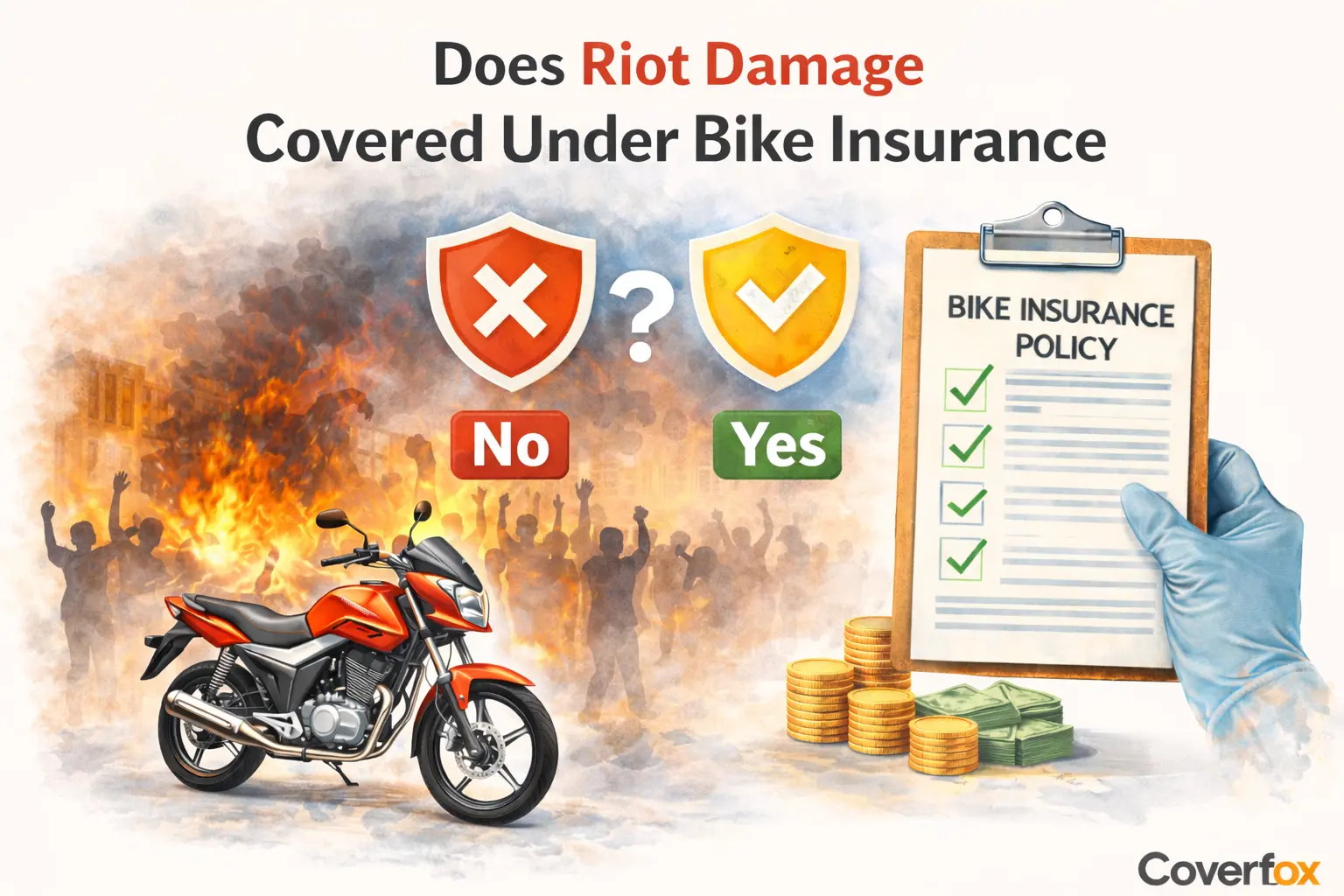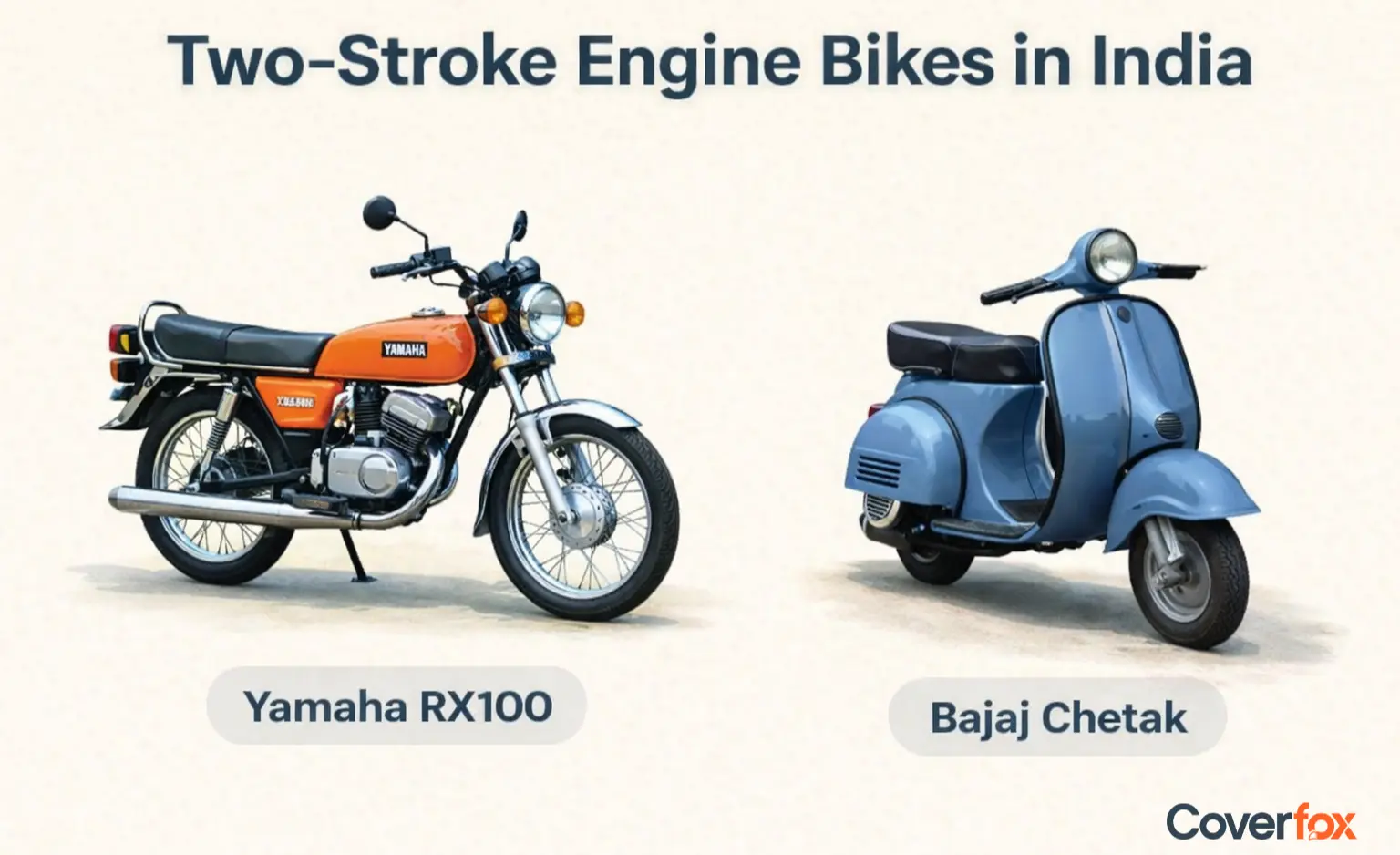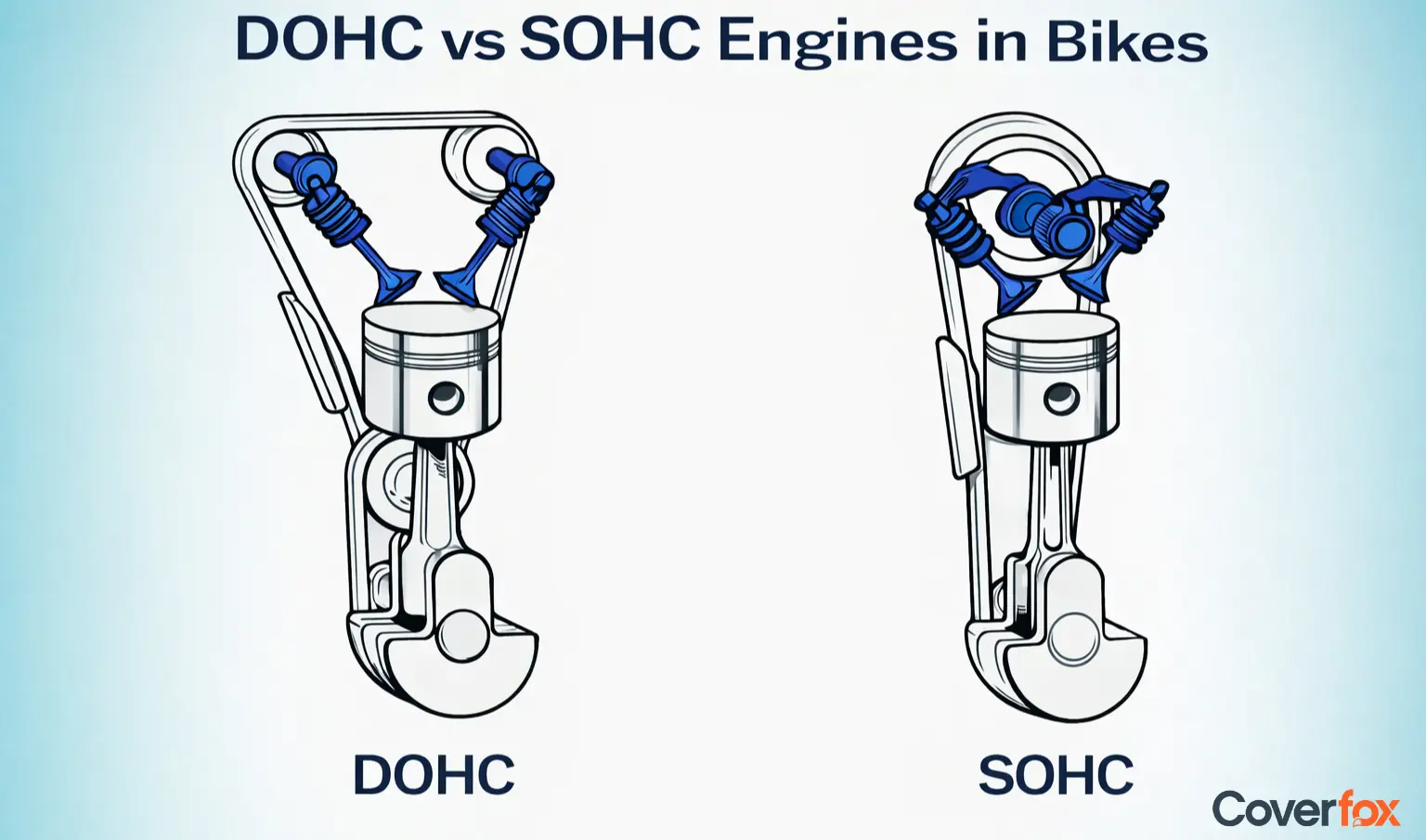When it comes to two-wheelers, fuel efficiency is a highly valued feature. Additionally, whether you are shopping for a new bike or someone you know has already bought one, the issue of fuel efficiency is sacred in India.

Monitoring the bike's mileage is essential for maximising fuel efficiency and cutting expenses, regardless of riding experience. Let's examine what mileage means in bike terms and pointers for efficiently determining your bike's mileage.
What is Mileage in a Bike?
It's crucial to comprehend the fundamentals of mileage before getting into the technicalities of verifying it. So what is the mileage of a bike? Mileage, which is commonly stated in kilometres per litre (kmpl), indicates how far your bike can go on a specific amount of fuel. Your bike is more fuel-efficient the more miles it has on it.
How To Calculate Mileage of a Bike?
To make sure your bike is operating at its best and using gasoline efficiently, you must check its mileage. Here's how to check mileage of bike:
Fill the Tank Completely
Begin by completely filling the fuel tank. To obtain precise mileage readings, make sure the tank is fully filled.
Set the Trip Meter to Zero
Set the trip meter to zero before you begin riding. You can use this to determine how far you've gone from a full tank.
Ride as Usual
Use the same routes and riding conditions you usually use to cover a certain distance on a bike, ideally over a few days.
Refuel the Bike
Go back to the petrol station and fill up the tank whenever you've travelled a certain distance. Note the number of litres used to fill the tank again.
How to calculate mileage per km?
Divide the distance driven (as shown by the trip meter) by the fuel consumption (in litres). For instance: Mileage is calculated as Fuel Used (litres) ÷ Distance Travelled (km). This indicates the mileage of the bike in kilometres per litre, or km/l.
Repeat for Accuracy: Since weather, traffic, and riding conditions may all affect mileage, it is best to repeat the procedure several times to obtain a more exact result.
You can keep an eye on your bike's performance and spot any problems that might be affecting fuel efficiency by routinely checking its mileage. A noticeable decrease in mileage may be a warning that maintenance is necessary.
Tips for Maintaining Good Mileage on Your Bike
In order to maximise the mileage of your two-wheeler, you can adhere to the following advice:
Regular Maintenance
The general condition of a bike is one of the main variables affecting its mileage. Fuel efficiency is directly impacted by routine maintenance, which keeps the engine, tires, and other parts in top operating condition. Follow the manufacturer's recommended maintenance routine to keep your bike in good condition.
Consider External Factors
The mileage of your bike can be affected by outside variables like riding habits, road type, and traffic circumstances. Improved fuel efficiency can be achieved through smooth acceleration, steady speed, and appropriate gear usage. Additionally, you can get less mileage if you ride in congested areas or uphill. These outside variables could potentially increase the rider's chance of getting into an accident. It should be your first responsibility to get both your two-wheeler and yourself covered by automobile insurance.
Monitor Tire Pressure
Tyre pressure is often disregarded, yet it is essential for fuel efficiency. Tires that are underinflated reduce mileage by increasing rolling resistance. To guarantee optimum fuel efficiency, check and maintain the recommended tyre pressure on a regular basis. The condition of the tire may also suffer if the recommended tire pressure is exceeded or decreased. It could raise the possibility of an accident and harm a car belonging to someone else. Purchase or renew a bike insurance policy immediately to protect your bike against such risks.
Fuel Quality Matters
Your bike's mileage may be impacted by the type of fuel you use. Use the recommended octane level for your bike and pick a reliable brand. Over time, mileage might be decreased by inefficient combustion caused by low-quality fuel.
Keep the Bike Light
Adding extra weight to your bike by carrying extra baggage or accessories might reduce its mileage. To increase fuel efficiency, keep your bike as light as possible by removing any extraneous parts and extras.
Use the Right Engine Oil
The total performance of your bike, including mileage, might be impacted by the engine oil you choose. For the right kind and grade of engine oil, adhere to the manufacturer's instructions. To guarantee ideal lubrication and efficiency, change the oil on a regular basis according to the prescribed frequency.
Conclusion
Saving money on petrol is only one benefit of maintaining and tracking your bike's mileage; another is making sure your bike is operating at its peak efficiency. You can take proactive measures to improve your bike's fuel efficiency, extend its lifespan, and have a more comfortable riding experience by implementing the techniques and advice described in this article.
Purchasing bike insurance is an additional step you may take to genuinely improve your smooth riding experience. Make sure to use the two wheeler insurance calculator to obtain multiple rates before purchasing a policy. The straightforward tool will provide you with useful estimates that you may use to comprehend and purchase the appropriate coverage.
More Useful Information for Two Wheeler Owners:
Frequently Asked Questions
What is considered good mileage for a bike?
Generally, 40-80 km/l is good, depending on the bike type.
Can modifications affect the bike's mileage?
Yes, engine or aerodynamic changes can increase or decrease efficiency.
Are fuel additives effective in improving mileage?
Some can help reduce engine deposits, but results vary.
How do I find my total mileage?
Check the odometer or use trip readings to calculate distance covered.
How can I track mileage?
Use fuel log apps, odometer readings, or manual calculations per refill.
Can bike weight affect its mileage?
Yes, extra weight puts more load on the engine, reducing fuel efficiency.
Why is my bike not giving mileage?
Reasons include poor maintenance, incorrect tire pressure, bad fuel, or worn engine parts.
 in Bikes.webp)
 in Bikes.webp)


.webp)
